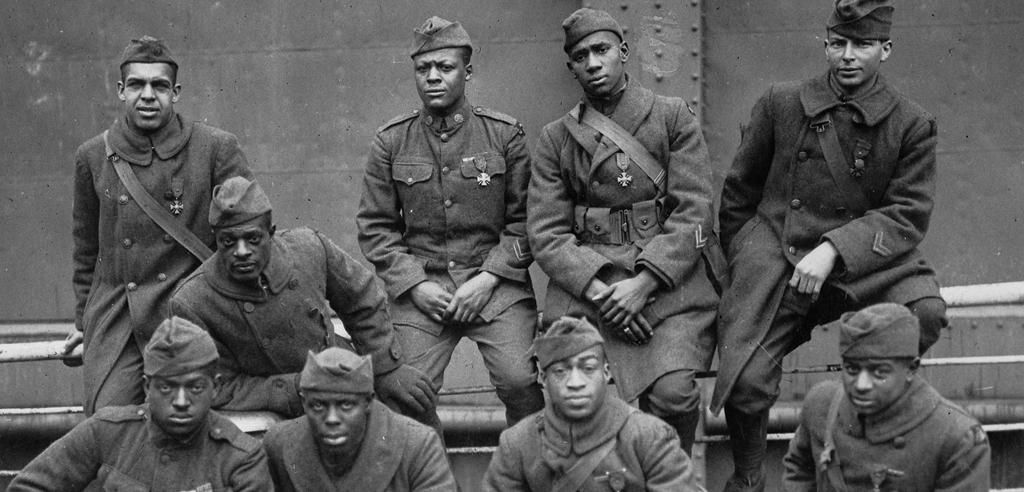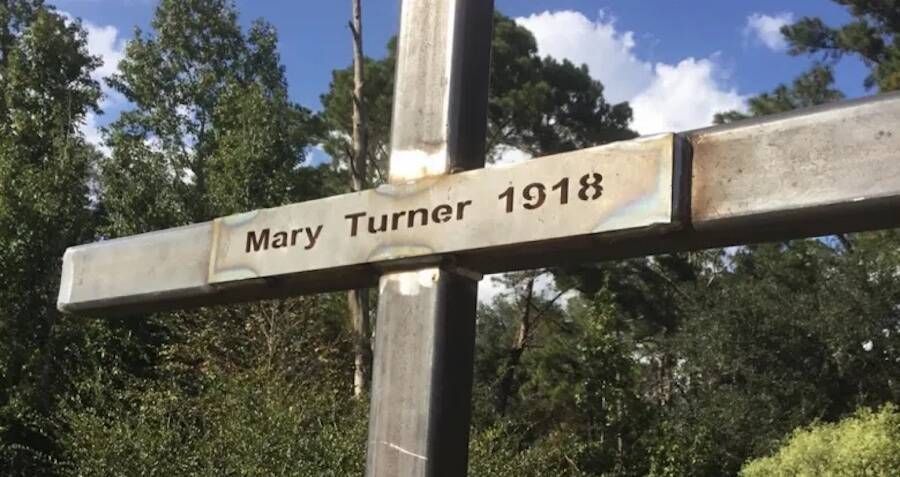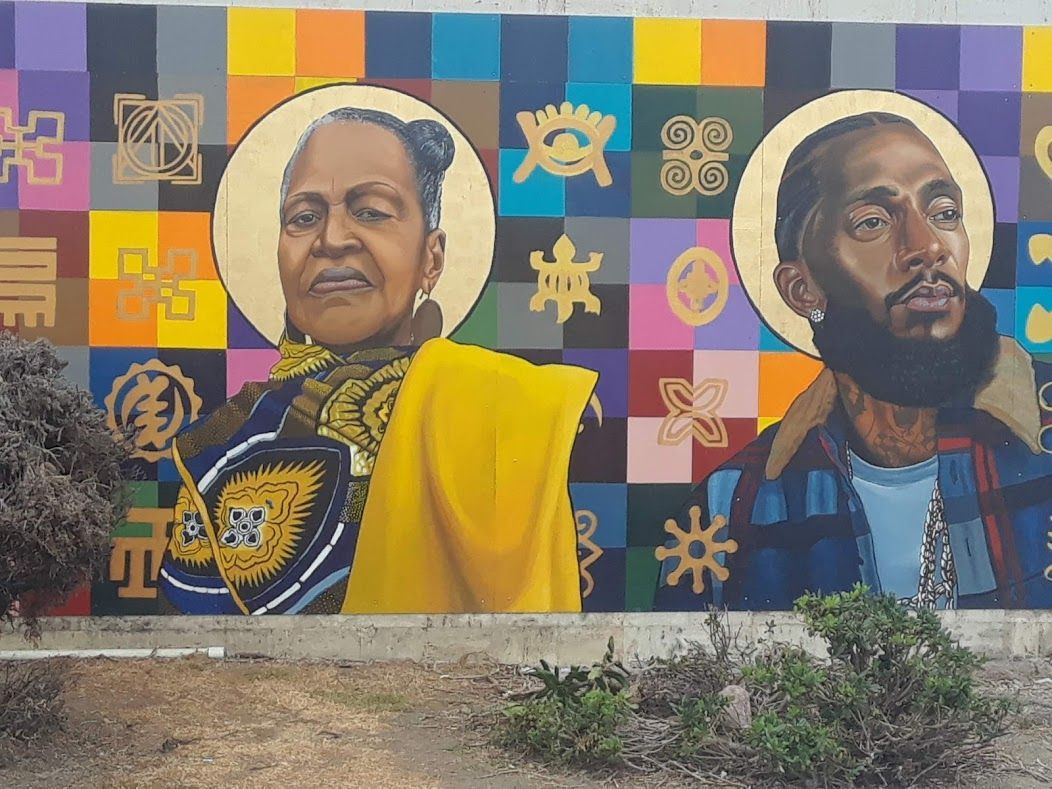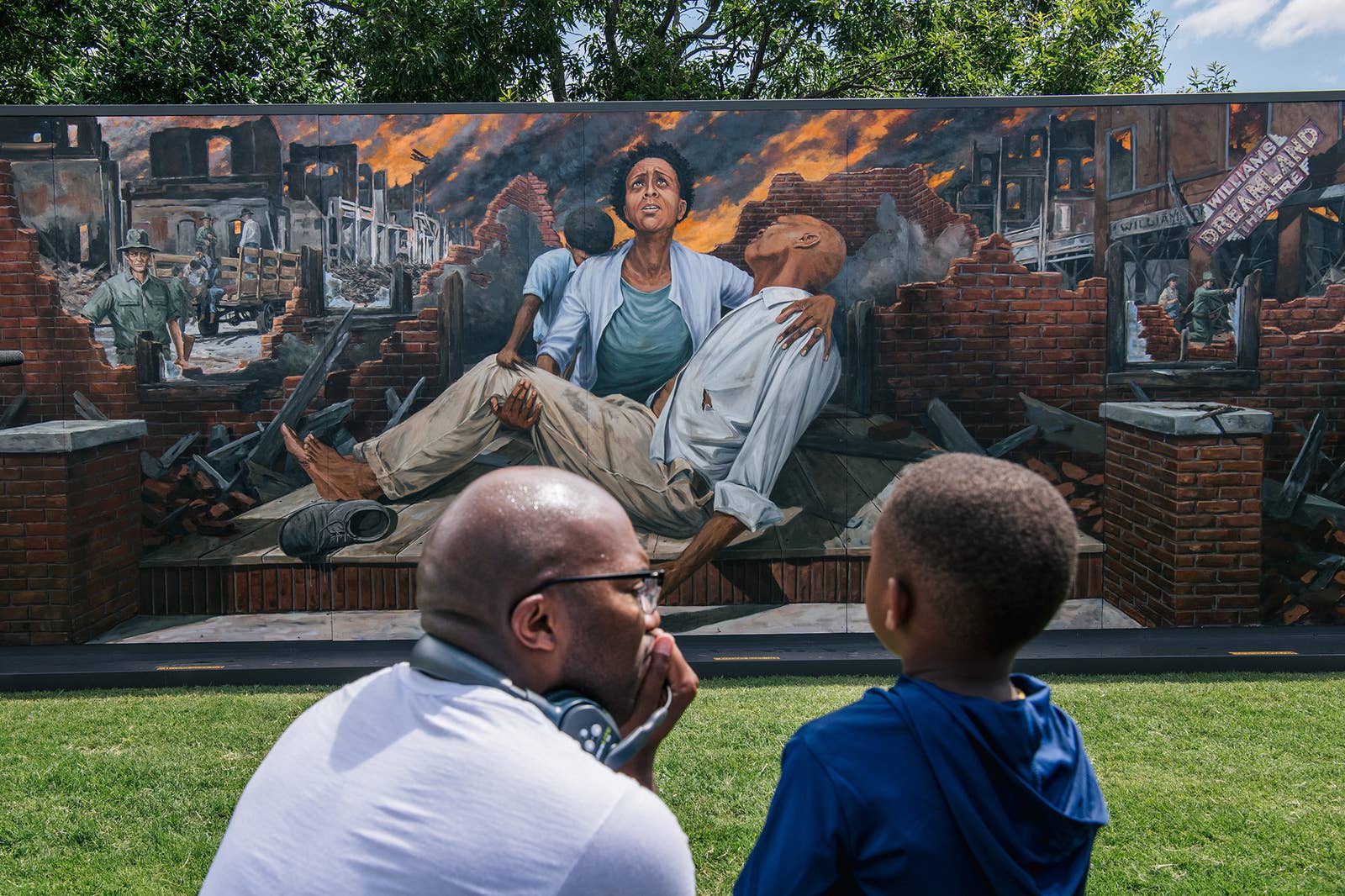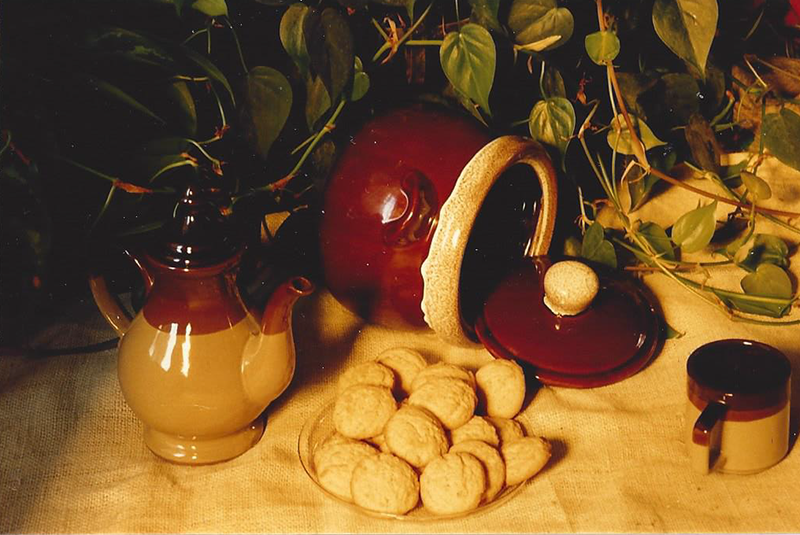Tea Cakes, With Black History Origins, Offer Connection to Future
Mrs. Robinson's Tea Cakes makes telling African American stories and history a sweet experience!
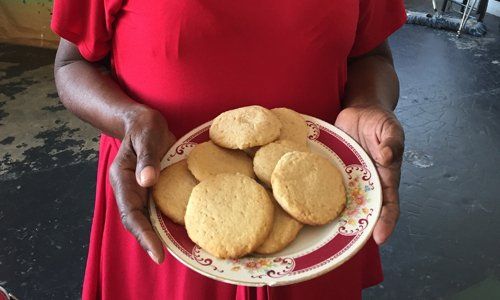
Please don’t offer Etha Robinson a chocolate chip cookie. Or an Oreo. Or a gingersnap.
Not even with a cold glass of milk.
Robinson, a baker who teaches biology at Dorsey High School, is committed to a cookie of a different sort, one with a past that is dear to her heart--and a bountiful future.
“We grew up on tea cakes,” said Robinson, who was born in Yazoo City, Miss., and now lives in Los Angeles. “They were a gift of love. If something has served you well, you never abandon it.”
What you do, Robinson said, is build on it.
The owner of Mrs. Bethune’s Tea Cakes, Robinson sells decorative tins filled with miniature versions of the cookies that are believed to have their beginnings in slavery. In a venture with the National Council of Negro Women, the tea cakes are offered as a fund-raising tool for churches and schools nationwide--much like Girl Scout cookies or candy is sold.
Even as Robinson promotes the product, at the heart of her pitch is history.
On special days, she takes tea cakes to her students and explains their beginnings. But to a generation of older African Americans with Southern roots--and to some Southern whites as well--no explanation is needed.
“There’s lots of tea cake memories” among people who haven’t had the cookie since leaving Mississippi, Louisiana or Georgia, she said.
Culinary historians say the cookie may have been slaves’ version of the English tea cake. With very little provisions, those enslaved Africans took what was available and made their own version.
Tea cakes became a treasure--comfort food that became a special treat during the holidays.
On the back of the Mrs. Bethune’s Tea Cakes tin, Maya Angelou shares her tea cake memory:
“When I was a lonely, scared and scarred eight year old, Mrs. Bertha Flowers, a lean, Black teacher invited me to her house and made tea cakes. The aroma of the freshly baked cookies merged with the rich sound of her voice as she read to me.”
For Robinson, lessons abound in this history, in the ability to take what one has--even if it is very little--and turn it into something treasured and valued, something remembered fondly.
But the problem, Robinson said, is that tea cakes are an all-too-distant memory for many who grew up eating them.
“With families migrating to the North, many traditions and foods of the South were left behind,” she said. “We put the tea cake on the back burner.”
The challenge now, Robinson said, is not to discard this past because of its connection to slavery, but to “take it to the next level.” Robinson is convinced that tea cakes can become as popular as bagels or tortillas--ethnic foods everyone can enjoy. And she pushes the idea with a passion.
“I used to think she was crazy,” said Robinson’s sister Helen. “But it really is time for the tea cakes. This is a way to start teaching kids history.”
And the cookies taste good.
After years of selling them as Mrs. Robinson’s Tea Cakes, Robinson attracted support from a group of investors in 1996 and began packaging the cookies in tins that bear the image of Mary McLeod Bethune. She then entered an agreement with the National Council of Negro Women, and dubbed the cookies Mrs. Bethune’s Tea Cakes.
The marriage of Bethune’s image and the cookie seemed natural, she said.
Bethune, a daughter of slaves who went on to become an advisor to President Franklin D. Roosevelt, founded Bethune Cookman College in Daytona Beach, Fla., in 1904, with “five girls, faith in God and $1.50,” the tin reads.
“Mrs. Bethune believed in helping people,” Robinson said. “She also believed in people helping themselves.”
Dwayne Sims, who heads a nonprofit organization in the Washington, D.C., area, used the cookies to teach a group of girls about Bethune and the tea cakes and how to manage money.
“They’ll start learning these entrepreneurial skills,” Sims said.
Sims has also served the cakes in a series of “Tea Times,” which serve as fund-raisers for women’s shelters.
“They love them,” he said. “It reminds them of what their grandmothers used to make,” he said.
At the African Marketplace Boutique in the Baldwin Hills/Crenshaw Plaza shopping center, sales manager Ursaline Bryant said
response to the tea cakes “has been wonderful. There’s a mix of people, those who already know about tea cakes and then there’s a lot of people that we’re introducing them to.”
The tea cakes are also available at the shopping center’s Robinsons-May store and at a Hallmark shop in the Ladera Shopping Center.
Robinson learned to make tea cakes the way many people did, by listening and watching, she said. Recipes were usually not written down.
For her the kitchen was like a laboratory. But Robinson was not content to master the old Southern standbys: collard greens and cornbread, okra and corn. She had to experiment.
“I tell people all the time, that’s why I don’t cook today because Etha was always in there messing up stuff,” her sister said laughing.
But those days in Yazoo City taught Robinson lasting lessons about food and self-sufficiency. The lessons were impressed upon her each time she watched her mother make preserves or swap collard greens for a neighbor’s beans.
“We used to can all summer,” she said. “We picked berries, peaches, and we made fresh jam. That’s power, when you’re able to provide and do for yourselves.
“We didn’t take those abilities and turn them into laundries, canneries and sewing factories. We left that behind and looked for jobs.”
Today Robinson has a basement pantry filled with jars of jam that she preserved herself. They are gifts that she hands out to people who have helped in her tea cake venture.
Over the years, the business has required a huge investment of time and money, but her philosophy is rooted in the lives of those historical figures she admires, such as Bethune and abolitionist Sojourner Truth.
“Dreams always cost you,” Robinson said. “If you believe in them you have to make the sacrifice.”


